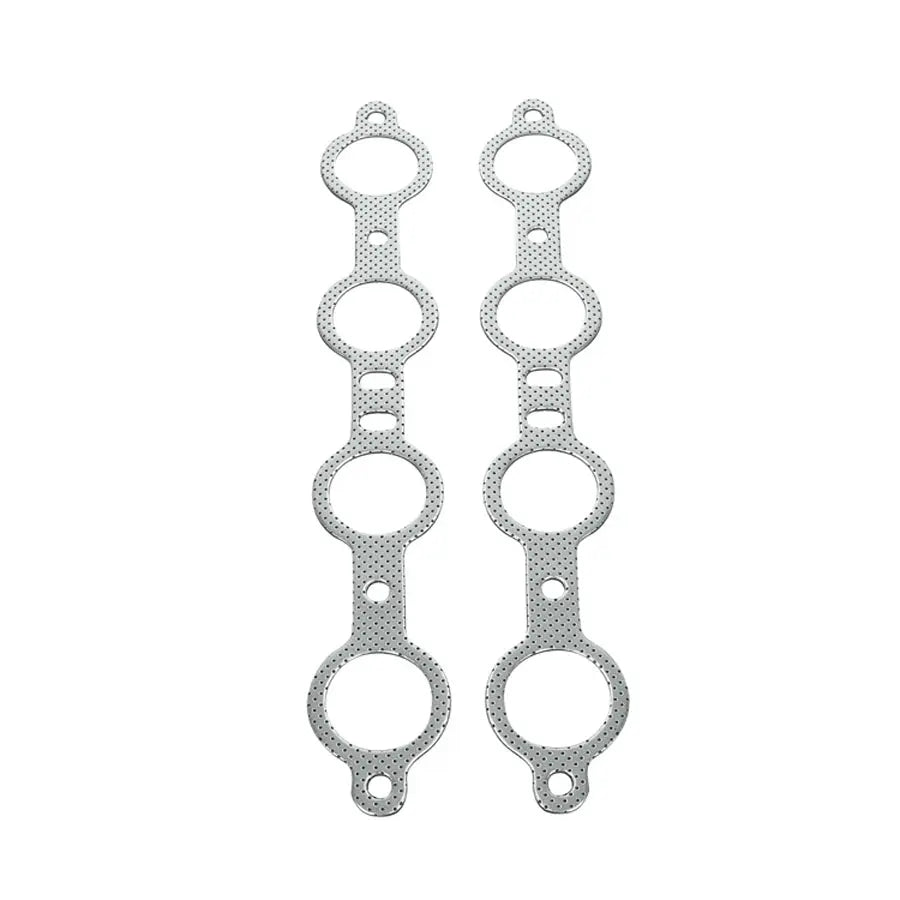Exhaust Header for 1979-2004 Ford Mustang 4.8L 5.3L
Exhaust Header for 1979-2004 Ford Mustang 4.8L 5.3L
Secure and trusted checkout with
Couldn't load pickup availability
- US FREE SHIPPING
- 30-DAY RETURNS
- QUALITY CHECKED
Delivery & Shipping
Delivery & Shipping
Shipping Time
🚚 Free Economy Shipping (3–7 business days)
⚡ Standard Shipping ($19.99) — Get your order in 3–5 business days!
International shipping: about 8-15 working days.
Orders require a standard processing time of up to 48 business hours before shipment.
Shipping Cost
We offer FREE SHIPPING on all of our products to customers in the Continental U.S.
For remote areas such as Alaska, Hawaii, Puerto Rico, or international customers such as those in Canada or Mexico, we will charge an additional shipping fee based on the weight of your purchase. If you need a price quotation, please contact us at service@toptuningboost.com
Tracking
Your tracking number will be sent in email immediately after we ship the order out. You may follow the link in the email to check the estimated arrival time of your order.
Usually ships from our US warehouse. If out of stock, items will be shipped from our international partners (delivery in 3–14 business days).
Refund & Returns
Refund & Returns
We hope you love what you've ordered! But just in case you're not 100% satisfied.
We've made the return process super easy. If for any reason you are unhappy with your order or should you wish to return or exchange a product then please contact us at service@toptuningboost.com at any time from Monday to Friday within 30 days after you received the item.
Description
Description
Fitment:
- 1979-1993 Ford Fox Body Mustang
- 1994-2004 Ford Mustang 4.8L 5.3L
Specifications:
Brand Name: FLASHARK
Certificate: ISO9001:2000
Application: Automobile Exhaust Header
Material: Stainless Steel
Surface: Mirror Polish
Model: EH28944
Features:
2-bolt flange
Full 1 7/8" Primaries
3" Collector
CNC Machined Flanges
Polished 304 Stainless Steel
Standard Graphite Manifold Gaskets
Professional installation is highly recommended
Installation Instruction is NOT Included
Boost Horsepower, Torque, and Save on Gas with Headers and Exhaust System Modifications!"
Replacing a vehicle’s headers and exhaust is a way to add horsepower and torque, and it will also increase your vehicle’s volume. Want a car that sounds like an American muscle car should? This header will help your vehicle achieve that and it can add up to 10-15 horsepower.
Install an exhaust system means about a 0.5 mpg gas mileage improvement. While that might not sound like much, consider this: If gas costs $3 a gallon and drives this truck 15,000 miles a year, you’re saving yourself about $85 a year on gas. In five years, you’ll have saved nearly enough money to pay for a complete cat-back exhaust system
Exhaust Header VS Manifold, which is the better choice?
The structural differences between exhaust headers and manifolds are the material and size. From the material, exhaust headers are made of lighter, thinner steel, while exhaust manifolds are made of thick iron. Exhaust headers are also longer than exhaust manifolds. When in use, exhaust manifolds create back pressure, which lowers performance. Because each cylinder of the engine is given its own tube, however, headers eliminate this problem; thus, allowing the gases to exit without the creation of back pressure. Therefore, exhaust headers are a BETTER choice than an exhaust manifold.
SOME ITEMS YOU MAY ALSO LIKE
In addition to purchasing this product, Flashark highly recommends that you purchase Flashark and Spelab's new collaborative product, the silicone coolant hose kit; to replace the stock rubber coolant hose in your car's cooling system.
Are silicone coolant hoses better? Coolant hoses transport the coolant—a mixture of water and antifreeze—from the engine to the radiator and back. The coolant absorbs heat from the engine block and heads and then releases this heat through the radiator, where airflow dissipates it away from the vehicle. This continuous flow is crucial for preventing engine overheating, which can lead to severe damage or failure.












